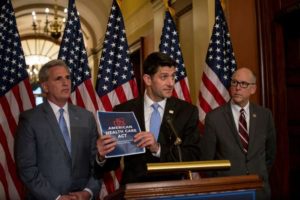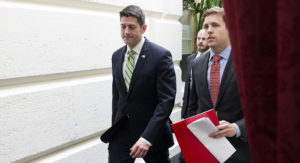
Donald Trump promised that no one would lose their health insurance under a re-crafted plan to replace the Affordable Care Act.
The Congressional Budget Office’s verdict? Wrong, Mr. President!
There goes a major campaign promise.
As predicted, the Trump administration dismisses the CBO report, which is supposed to be the gold standard in determining the fiscal viability of sweeping, landmark public policies.
The CBO projects that 24 million more Americans will lose their health insurance by 2026 under the American Health Care Act. Not good, right?
Health and Human Services Secretary Dr. Tom Price — a leading critic of the Affordable Care Act — says the CBO report is incomplete and inaccurate. Well, of course he would say that.
As the New York Times has reported: “The much-anticipated judgment by Capitol Hill’s official scorekeeper did not back up President Trump’s promise of providing health care for everyone and was likely to fuel the concerns of moderate Republicans. Next year, it said, the number of uninsured Americans would be 14 million higher than expected under current law.”
The president has said “no one” would lose their health insurance. If it were anyone else, I would stand and applaud such a declaration. The problem, though, with this president is that I cannot trust that his word is true, that he’s actually speaking from his heart.
I just do not know any longer when or whether he’s telling the truth.
Therefore, I shall rely on the analyses of others, such as the CBO.
***
One more point …
The White House doesn’t want the AHCA to be nicknamed Trumpcare, much the way the ACA was given the name of President Barack Obama, who signed the ACA into law in 2010 and has become identified as the former president’s signature piece of domestic legislation.
Well, too bad. Trumpcare it is!
The Republican leadership in Congress has crafted it. The president has signed on to it.
Let’s hang the president’s name on it.



